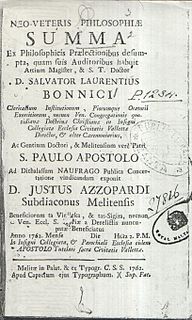 W
WJustus Azzopardi was a minor Maltese philosopher. His area of specialisation in philosophy was chiefly metaphysics. No portrait of him is known to exist as yet.
 W
WSaviour Bernard (1724-1806) was a Maltese medical practitioner, a scientist, and a major philosopher. His areas of specialisation in philosophy were mostly philosophical psychology and physiology.
 W
WDominic Bezzina was a minor Maltese philosopher who mainly specialised in physics. He also dealt with logic.
 W
WPeter Paul Borg (1843–1934) was a Maltese theologian, canonist and minor philosopher. He was mostly interested in the philosophy of law.
 W
WGeorge Caruana (1831–1872) was a Maltese minor philosopher mostly interested in epistemology. He held the Chair of Philosophy at the University of Malta (1859–72).
 W
WGiovanni Caruana was a Maltese lawyer and minor philosopher. He was mostly interested in the philosophy of law and in political economy. At least two portraits of Caruana exist, both by the renowned early 20th century Maltese artist Edward Caruana Dingli. Both were displayed at an exhibition on Caruana Dingli at the National Museum of Fine Arts in Valletta, Malta, in 2010.
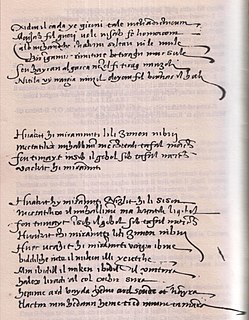 W
WPietru "Peter" Caxaro was a Maltese philosopher and poet. He is so far Malta's first known philosopher, fragments of whose works are extant. His philosophical views and positions qualify him as an honourable adherent of the mediaeval humanist movement. His contribution skilfully stands as a mature reflection of the social and cultural revival of his time.
 W
WFortunatus Victor Costa was a minor Maltese philosopher who specialised in metaphysics.
 W
WSaviour Cumbo (1810–1877) was a Maltese theologian and minor philosopher. His philosophical writings deal mainly with the relationship between reason and faith. Though his engagement with philosophical reflection was peripheral, his contribution in this field was at least interesting and at most insightful. No portrait of him has been identified up till now.
 W
WS. Debono was a Maltese scientist, linguist and minor philosopher. In philosophy he mostly specialised in ontology. Unfortunately, his exact Christian name is unknown. Neither do we possess as yet a portrait of him.
 W
WHenry Ercole was a minor Maltese mediaeval philosopher who specialised mainly in ethics and logic. He enjoyed great esteem from his contemporaries, both as an administrator and a philosopher.
 W
WLouis Farrugia (1857–1933) was a Maltese theologian and minor philosopher. In philosophy he was mostly interested in Scholasticism and literature. No portrait of him has been identified up till now.
 W
WAloisio Galea (1851–1905) was a Maltese theologian and minor philosopher. He specialised mostly in moral philosophy.
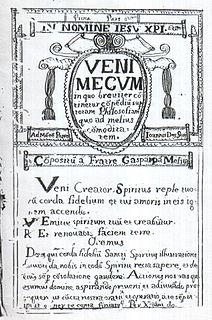 W
WGasper Grima (c.1680–1745) was a minor Maltese mediaeval philosopher who specialised mainly in metaphysics and logic.
 W
WRosarius Mary Hagius (1673–1757) was a minor Maltese mediaeval philosopher who specialised mainly in metaphysics.
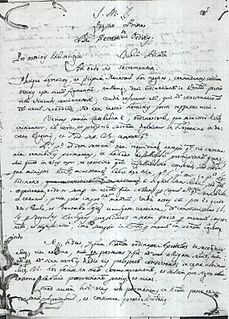 W
WJerome Leocata was a major Maltese philosopher who specialised mainly in metaphysics. His long academic career in philosophy and theology was very hampered by his many administrative commitments. His writings, however, bear witness to his thinking skills and his philosophical prowess. He possessed a clear and systematic mind, consistently endeavouring to give a sound philosophical basis to his speculations. No portrait of him is yet known to exist.
 W
WGiuseppe Mifsud Bonnici was a Maltese judge and philosopher, Chief Justice of Malta between 1990 and 1995. He mostly specialised in the philosophy of law.
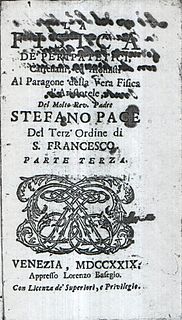 W
WStefano Pace (1695–1735) was a minor Maltese mediaeval philosopher who specialised mainly in physics.
 W
WJohn Constance Parnis (1695–1735) was a major Maltese mediaeval philosopher who specialised mainly in metaphysics, physics, and logic.
 W
WGaetanus Matthew Perez was a minor Maltese philosopher. His area of specialisation in philosophy was chiefly ethics. No portrait of Perez is known to exist so far.
 W
WHenry Regnand was a minor Maltese mediaeval philosopher who specialised mainly in logic and metaphysics.
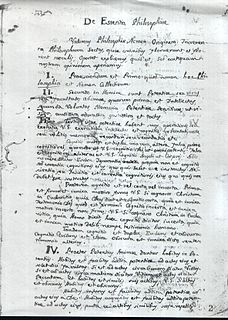 W
WJoseph Rizzo was a minor Maltese philosopher and theologian who probably specialised in logic.
 W
WNicholas Zammit (1815–1899) was a Maltese medical doctor, an architect, an artistic designer, and a major philosopher. His area of specialisation in philosophy was chiefly ethics. Throughout his philosophical career he did not adhere to just one intellectual position. Roughly two-thirds into his life, Zammit passed from a liberal way of thinking to a conservative one. This does not mean that there are no carry-overs, developments, or continuations between the two phases, or that Zammit himself acknowledged such a division. Notwithstanding, the development suggests that an analysis of Zammit's works will reveal different attitudes, dispositions, emphasis, and conclusions of the two periods.